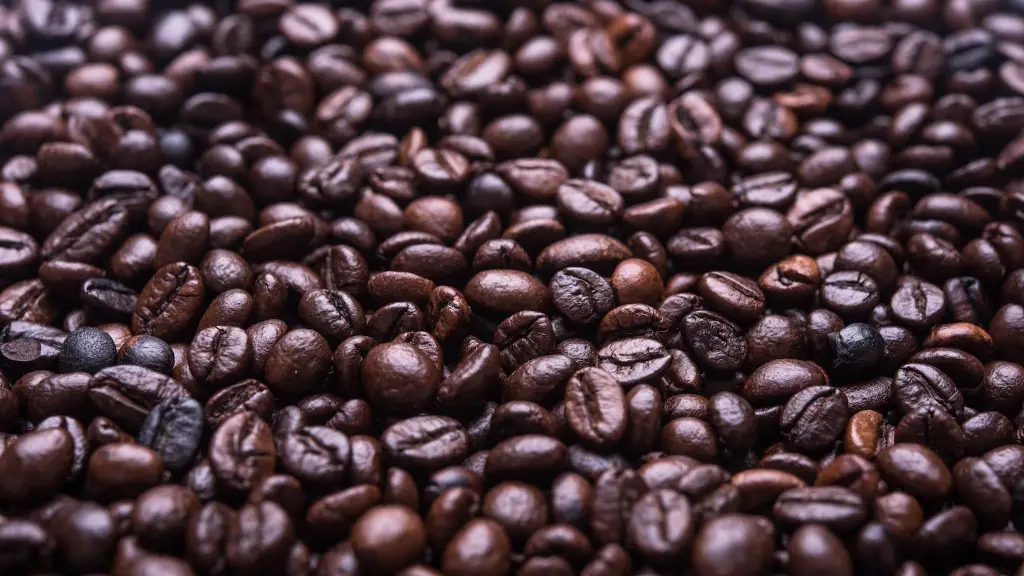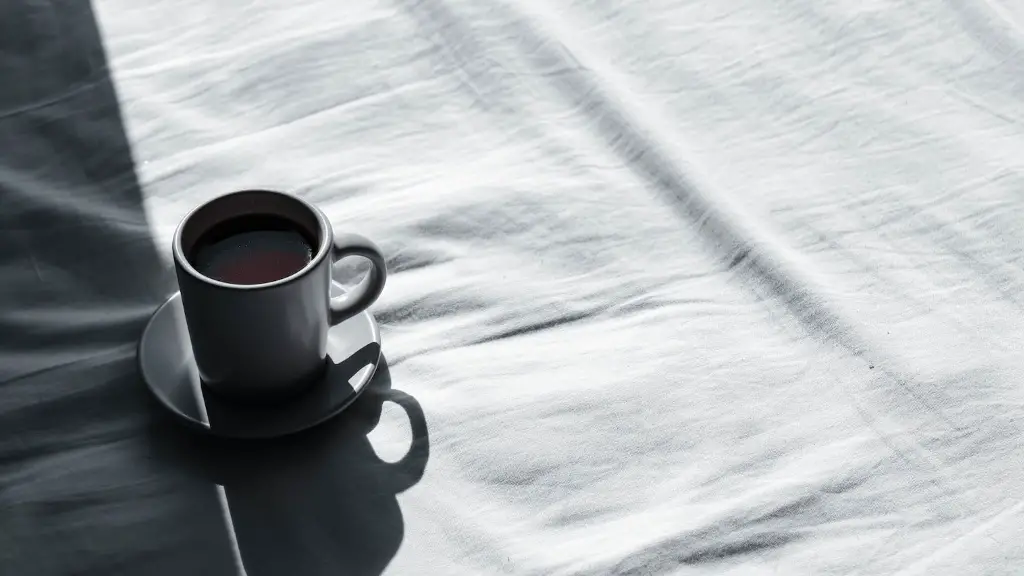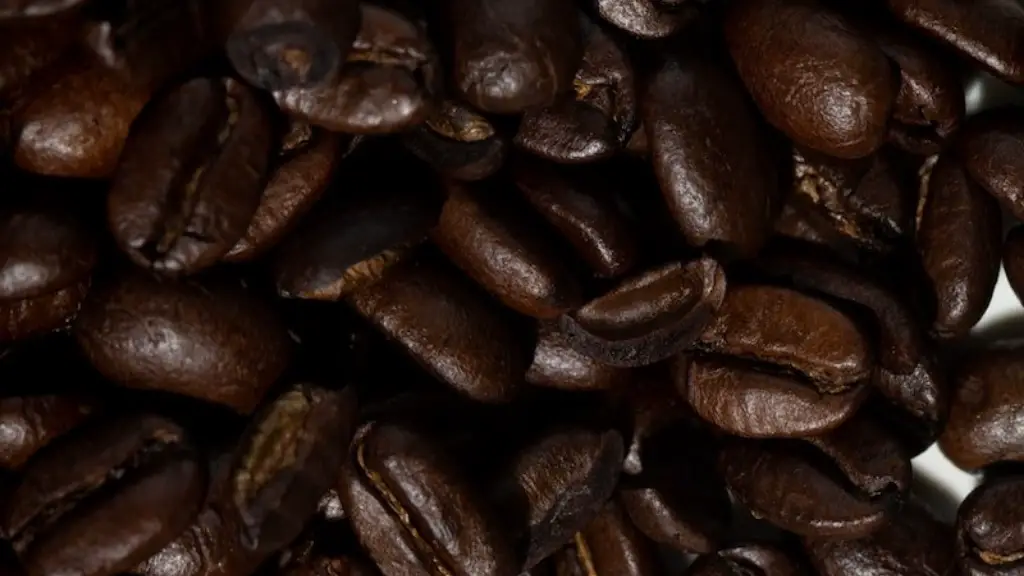Does drinking Coffee Make your Period come faster?
You may have heard that drinking coffee can reduce the time between your periods. While this is not exactly true, it is a common misconception held by people who consume large amounts of caffeine. To understand why this is so, we must first look at what exactly happens when we drink coffee.
Caffeine, which acts as a stimulant, can affect the body in numerous ways. It can raise blood pressure and heart rate, increase alertness and concentration, and increase energy levels. Studies have also found that drinking coffee can lead to a temporary increase in levels of a hormone called estrogen, which can have an effect on the menstrual cycle. Higher levels of estrogen have been linked to shorter periods.
The World Health Organisation recommends that adults consume no more than 400 milligrams of caffeine per day. This is the equivalent of four cups of brewed coffee. However, much higher amounts of caffeine can be consumed, and some people may find themselves drinking eight or more cups of coffee a day.
Because of this, it is possible that regular, excessive caffeine consumption could contribute to a shorter menstrual cycle. That being said, there are other factors that can affect the cycle, such as age, stress, weight, and general health. Additionally, there is no scientific evidence to support the claim that drinking coffee can make a person’s period come faster.
In order to be sure that caffeine is not having an effect on your period, it is important to monitor your caffeine intake. Try to limit it to no more than 400 milligrams per day, as suggested by the World Health Organisation, and try to go a week without caffeine to see if your menstrual cycle is affected. It is also important to consider other factors, such as stress and diet, that could be contributing to the duration of your period.
In conclusion, there is no evidence to suggest that drinking coffee will make your period come faster. That being said, it is possible that excessive caffeine consumption could contribute to a shorter menstrual cycle. It is important to consider other factors as well as limit your caffeine intake, in order to ensure that your period remains consistent and healthy.
Does Caffeine Intake Affect How Painful Your Period Is?
There is no scientific evidence that directly links daily caffeine intake to the intensity of menstrual cramps. However, caffeine is known to have the ability to reduce inflammation, and inflammation is the main cause of period cramps. As such, it is possible that drinking coffee regularly could reduce cramp intensity.
In addition, caffeine can have an effect on the body’s natural painkillers, such as endorphins, which are released during exercise and can reduce pain intensity. This phenomenon is known as the ‘runner’s high’, and it is thought that drinking coffee can potentially increase the feeling of the high, which could ease cramping.
It is also believed that caffeine can help to reduce the symptoms of premenstrual syndrome (PMS) by increasing alertness and focus and reducing fatigue. While this would not directly prevent menstrual cramps, it could improve the overall mood and make it easier to cope with the physical pain associated with cramps.
That being said, it is important to note that there is no scientific evidence to suggest that caffeine intake has any direct effect on menstrual cramps. Additionally, it is important to be aware of the possible side effects of consuming too much caffeine, such as insomnia and anxiety.
In conclusion, while there is no evidence to suggest that caffeine intake directly affects the intensity of cramps, it is possible that drinking coffee regularly could have some effect on the symptoms of PMS and possibly reduce cramping intensity. It is important to be aware of the possible side effects of taking too much caffeine, and it is best to limit your intake.
Can Caffeine Make Periods Irregular?
Many people believe that drinking coffee can make menstrual cycles irregular, but there is no scientific evidence to support this claim. In fact, a study published in the British Medical Journal found that consuming up to 600 milligrams of caffeine per day did not have an effect on the regularity of a person’s menstrual cycles. That being said, it is important to note that the same study did find that high levels of caffeine consumption (more than 600 milligrams per day) could potentially lead to longer cycles and irregular ovulation.
It is also important to remember that other factors, such as stress, diet, and weight, can have an effect on menstrual cycles. Additionally, some hormonal contraceptives, such as the birth control pill, can also have an effect on the regularity of menstrual cycles. If you believe that your periods are becoming irregular, it is best to speak to your healthcare provider to determine the cause.
In conclusion, there is no scientific evidence to suggest that drinking coffee can make periods irregular. However, it is important to be aware of the possible effects of consuming high levels of caffeine, as well as other external factors, such as stress and weight, that could be contributing to an irregular menstrual cycle.
How Caffeine Affects the Severity of Period Symptoms
Most studies into the effects of caffeine on menstruation have found little to no evidence that caffeine consumption directly affects the severity of PMS symptoms, such as mood swings, depression, and irritability. That being said, as mentioned earlier, it is possible that drinking coffee regularly could reduce some of the inflammation that causes cramping.
Caffeine is also thought to increase alertness and focus, which may help to ease other symptoms such as fatigue and lethargy. Additionally, some people believe that caffeine can help to reduce food cravings, making it easier to maintain a healthy diet.
However, it is important to note that there is no definitive evidence to support these claims and it is best to limit caffeine intake. Consuming too much caffeine can lead to side effects such as insomnia, anxiety, and headaches, which could possibly make the symptoms of PMS worse.
In conclusion, while there is no evidence to suggest that caffeine consumption directly affects the severity of PMS symptoms, it is possible that drinking coffee regularly could have some effect on the overall mood, energy levels, and cramping associated with your period. Nonetheless, it is important to be aware of the possible side effects of taking too much caffeine and to limit your intake.
Can Caffeine Help with Heavy Periods?
Heavy periods, or menorrhagia, can have a significant impact on quality of life and is a common concern among women. While there is no scientific evidence to suggest that caffeine consumption can directly reduce heavy periods, studies have found a link between caffeine consumption and lower levels of a hormone called progesterone, which can lead to heavier periods.
It is thought that caffeine consumption could reduce progesterone levels by inhibiting the production of a certain enzyme. This enzyme is responsible for converting cholesterol into progesterone, which is then released when levels of other hormones, such as estrogen and testosterone, increase. As such, it is possible that drinking coffee regularly could lead to lower progesterone levels and therefore, lighter periods.
That being said, it is important to note that there is no scientific evidence to support this claim and it is not recommended to increase caffeine intake as a way to reduce periods. Additionally, it is important to be aware of the possible side effects of taking too much caffeine and to limit your intake.
In conclusion, while there is no direct evidence to suggest that caffeine can help with heavy periods, it is possible that drinking coffee regularly could reduce progesterone levels and therefore, lighter periods. However, it is best to speak to your healthcare provider first before making any changes.
Are there any Health Benefits of Caffeine for Menstruation?
There is no scientific evidence to suggest that drinking coffee during your period can have any health benefits. That being said, some people believe that drinking coffee can reduce the symptoms of PMS, including cramps, bloating, and fatigue as mentioned earlier.
Caffeine is also thought to increase alertness and focus and may make it easier to cope with the physical and mental stress associated with menstruation. Additionally, some people find that drinking coffee has a calming effect, which could make it easier to manage the symptoms of PMS.
However, drinking too much coffee can have a negative effect on your health, particularly if you are pregnant or have underlying health conditions. Caffeine can also have an effect on fertility and can make it harder to conceive. Therefore, it is important to be aware of the possible side effects of drinking too much coffee and to limit your intake.
In conclusion, while there is no scientific evidence to suggest that drinking coffee while menstruating has any health benefits, some people may find that consuming moderate amounts of caffeine can help to reduce the symptoms of PMS. Nonetheless, it is important to be aware of the possible side effects of taking too much caffeine and to limit your intake.





